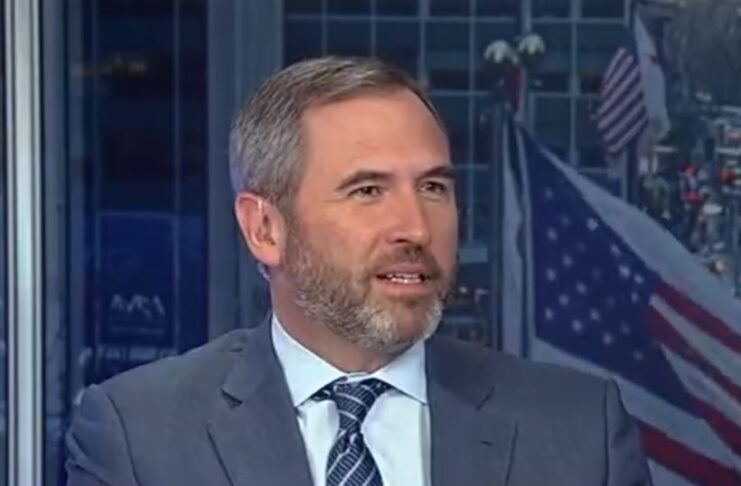Garlinghouse chose which regulatory agency is best for the cryptocurrency market amid the company’s ongoing lawsuit with the SEC.
Following the argument about which regulatory watchdog between the CFTC and the SEC should be the most appropriate to regulate cryptocurrencies, Brad Garlinghouse, the CEO and founder of Ripple has made his opinion known on the matter.
Speaking in a Bloomberg interview today, Garlinghouse noted that the most suitable regulator for the digital currency space is the Commodity Futures and Trading Commission.
“Time and Time again, what you find is that the CFTC is the most appropriate regulator for this industry and I think you will find that uniformity across the whole industry,” the Ripple founder was quoted as saying in the interview.
SEC vs. Ripple Lawsuit: A Determinant of Garlinghouse’s Choice?
For many, Garlinghouse could opt for the CFTC because of the lawsuit slammed on Ripple by the Securities and Exchange Commission.
Recall that Ripple and two of its executives, including Garlinghouse and the company’s chairman Chris Larsen, were charged by the SEC for conducting an unregistered securities offering that saw it raise $1.3 billion in 2013.
While the SEC is adamant that Ripple’s XRP is a security, the blockchain company does not feel so, as it is determined to prove this fact in the court.
U.S. Is the Only Country That Considers XRP a Security
Garlinghouse noted in the interview that the United States SEC is the only regulator in the world that considers XRP as security as other global regulators have classed the digital asset using different terms other than security.
“The only country on the planet that thinks XRP is a security is the United States.”
With no other country joining the SEC to class XRP as a security, the U.S. agency is alleged to have adopted various means to frustrate Ripple into agreeing to a settlement that will ultimately put an end to the lawsuit.
SEC’s Delay Tactics
Since the charges were announced in December 2020, the SEC has been accused of employing delay tactics to stall the judgment of the lawsuit.
The delays have succeeded in pushing the lawsuit to next year, as an outcome is expected to be reached before the end of 2023.
While there is no guarantee on which party will be favored, several experts have predicted that Ripple will come out victorious in the lawsuit.
Ripple Operating Like It’s Already Lost
Meanwhile, Garlinghouse does not want to get his hopes high, as he noted that the company is already operating as if it has lost the case.
A loss for Ripple would imply that the blockchain company will not operate in the United States and the company will have to rely on its clients across other countries to excel.
SEC and CFTC Seek Regulatory Roles in Cryptocurrencies
For years, both the United States Securities and Exchange Commission (SEC) and the Commodity Futures Trading Commission have been vying for the role for which of the agency will ultimately become the watchdog to oversee the regulation of the digital currency market.
Both the CFTC and the SEC have weighed into the crypto space, making regulatory decisions on issues affecting the nascent industry.
For instance, based on the utility of Bitcoin, the CFTC declared that the world’s largest cryptocurrency by market capitalization is a commodity and as such the asset class falls under its jurisdiction.
Similarly, via its former director William Hinman, the SEC also declared that Ethereum is not a security and does not fall under the Securities agency’s regulatory purview.
DisClamier: This content is informational and should not be considered financial advice. The views expressed in this article may include the author's personal opinions and do not reflect The Crypto Basic opinion. Readers are encouraged to do thorough research before making any investment decisions. The Crypto Basic is not responsible for any financial losses.



